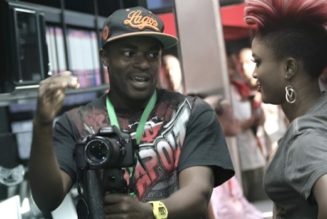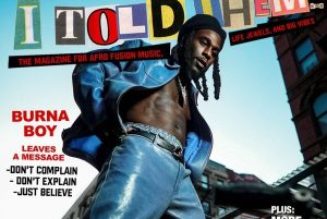
The fact that country music star Maren Morris went on tour with the Chicks this year may have been a coincidence, but it certainly seemed meant to be.
In September, Morris revealed in a Los Angeles Times interview that she planned to distance herself from the country music world — she was alarmed by what she saw as racism, homophobia, transphobia and misogyny dovetailing with the industry, and had moved from Sony’s Nashville label to Columbia Records. In recent years, Morris publicly condemned Morgan Wallen for using a racial slur and called out Jason Aldean’s wife for a post criticized as transphobic, and she faced an enormous backlash from country fans and the industry for both actions. And so, she essentially removed herself from the genre.
Twenty years prior, a very different but parallel incident famously played out with the then-Dixie Chicks, the superstar trio of Natalie Maines, Martie Maguire and Emily Strayer. During a London concert in March 2003, Maines criticized President George W. Bush on the eve of the Iraq War. The group faced an enormous backlash from country fans and the industry. And so, they were essentially removed from the genre.
Radio stations stopped playing the Chicks’ music and invited listeners to destroy their CDs. They were basically blacklisted and subsequently used as a warning to country singers: Never talk about anything political or controversial, because you don’t want to end up like the Chicks.
But while the Chicks’ fate has been successfully used as a fear tactic for years, it has also had the opposite effect: The band is an inspiration for a new class of outspoken country stars who don’t want to just shut up and sing. The timing of Morris’s “departure” from the genre — as well as her serving as an opening act for the Chicks on tour this summer — was a fitting, full-circle moment symbolizing how the treatment of the trio still looms over country music.
Morris later said in interviews that headlines saying she was “leaving country music” were hyperbolic; as she told one concert crowd, you can’t ever really leave country music, because it’s “a soulful entity that lives inside you.” But she made it very clear that she wants nothing more to do with the Nashville industry machine, the same one that blacklisted the Chicks all those years ago. In fact, Morris said, that’s when her penchant for speaking out began.
“I saw these beloved superstars and heroes of mine get completely disenfranchised within their own genre,” Morris told Variety last month when she was honored as the publication’s Changemaker of the Year. “I think that’s probably where it started for me, and I guess I never shook it off.” (Representatives for Morris and the Chicks said they were unavailable to comment for this article.)
Morris timed her exit from her Nashville label with the release of two songs, “The Tree” and “Get the Hell Out of Here.” The lyrics of both describe a dynamic so dysfunctional that walking away is more effective than trying to fix it. The music video for “The Tree” features Morris lighting a match and burning down a “perfect” small town that features yard signs such as “GO WOKE GO BROKE.”
While the lyrics are open to interpretation, Morris has confirmed the tracks are about her relationship with country music. She debuted “The Tree” live in concert when she opened for the Chicks in Ottawa on the day her Los Angeles Times interview published.
“Thinking about the last few shows we’ve had with the Chicks, the meaning behind this song, how I got to where I was when I wrote it, where you just burn the whole … toxic thing down …” Morris trailed off as she introduced the song to the cheering arena. “I would not have been able to write this song or get to this place of peace if the Chicks had not been in my life to do it first.”
On the red carpet at the Country Music Association Awards in November, artists raved about the Chicks’ legacy as musicians — they infused classic country with a modern sound in the 1990s and early 2000s, with smashes from “Wide Open Spaces” and “Cowboy Take Me Away” — as well as their overall influence.
“The Chicks are icons … just them having guts and them being able to stand on what they believe and to be able to reinvent themselves, I admire that,” said singer-songwriter Brittney Spencer, who performed “The Tree” with Morris on “The Tonight Show Starring Jimmy Fallon” right before the CMAs. She was also on the same bill as the Chicks this summer at a festival anchored by Bruce Springsteen: “I feel extremely grateful to have gotten to even be in their orbit for just half of a second,” Spencer said.
Songwriter Ben Williams, who landed his first CMA nomination for co-writing Megan Moroney’s “Tennessee Orange,” said: “What the Chicks have done is amazing — the way they put their careers, their lives on the line, for their artistry was inspiring. They helped me in so many ways just understand how truly powerful a female country song can be.”
After the 2003 incident, which has been documented endlessly in the media and in their own documentary, “Shut Up and Sing,” the Chicks thrived. They swept the Grammy Awards for their multiplatinum 2006 record, “Taking the Long Way,” including album of the year, and they took a decade-long hiatus to work on side projects before embarking on another world tour. In 2020, they returned with the scorching album “Gaslighter” in collaboration with megahit pop producer Jack Antonoff, and they have been touring arenas ever since.
The band’s success outside the stringent confines of country music, which has a very specific way of dictating careers, has also been an inspiration. Kalie Shorr, a singer-songwriter who lived in Nashville for nearly a decade before moving to Los Angeles last year to lean into pop and punk and rock, calls herself part of the “recovering country artist community” among the “literally dozens” of singers who have left the genre in the not-so-distant past. She said what happened to the Chicks “looms large” in Nashville, but imagines the band must relish the freedom of singing and saying whatever they want.
Shorr has experienced some of this freedom — once she left the country world, she said, she came out publicly as bisexual, something that people in her life had known for years. However, she said, she was advised that coming out would ruin her career, echoing other LGBTQ singers who have heard similar warnings from executives concerned about the reaction from the genre’s conservative fans.
“In retrospect, I should have done whatever I wanted to do,” Shorr said, noting the hypocrisy of being in a format marketed as authentic, yet not being able to share her full self. She added that songwriting sessions in Los Angeles are a world away from those in Nashville, where there’s still a lot of “you can’t say that” or “you can’t do that” or “that’s a great line, but it’s too much.”
The Chicks never seemed to care about such restrictions, even when they were inside the country music machine — their “attitude and sass” was partly why so many female country fans were originally drawn to them, said famed songwriter Victoria Shaw. When she released her own albums in the 1990s, she remembers her record label warned her against discussing politics in public, long before the Chicks controversy; after that, the directive got stronger. Shaw is not surprised that women in Nashville are still drawing inspiration from the band.
“They were superstars, and they were also the soundtrack to a lot of female lives, so you can’t really squelch that. You can’t,” Shaw said. She added that trio had a “long-term effect” on artists such as former country star Taylor Swift (known for being a Chicks fan) as well as Morris, calling them women who “are finding their voices, having their voices, and are not afraid to use their voices.”
Morris has been an unusually outspoken country artist since she made a splash in Nashville around 2015, sparking a bidding war among labels. She criticized the lack of female artists played on country radio, something most artists wouldn’t do for fear of angering gatekeepers who control radio playlists. But she became one of the few contemporary female country artists with No. 1 songs on the radio, with huge hits such as “My Church,” “The Bones” and “The Middle,” a pop crossover smash with Zedd and Grey.
In 2020, she started speaking out more about politics, endorsing Joe Biden for president and writing a protest song called “Better Than We Found It” with a video that supported the Black Lives Matter movement. The following year, Morgan Wallen was captured on video saying the n-word, and Morris was one of the few Nashville stars to condemn him, tweeting in part, “We all know it wasn’t his first time using that word. We keep them rich and protected at all costs with no recourse.”
In response, Morris and her young son received death threats, she told the New York Times’s “Popcast (Deluxe).” A year and a half later, Jason Aldean’s wife, Brittany — a beauty product influencer and vocal Donald Trump supporter — posted an Instagram caption that was criticized as transphobic: “I’d really like to thank my parents for not changing my gender when I went through my tomboy phase. I love this girly life.”
Morris posted to Twitter: “It’s so easy to, like, not be a scumbag human? Sell your clip-ins and zip it, Insurrection Barbie.” Afterward, Morris received a flood of social media backlash, and former Fox News host Tucker Carlson called her a “lunatic” (a label that Morris has since co-opted for her fan club).
Several months after, in January 2023, Morris sat down with her longtime collaborators, Laura Veltz and Jimmy Robbins, and wrote “The Tree” and “Get the Hell Out of Here.” Morris told “Popcast (Deluxe)” that the songs were written after “a ton of traumatic” things that had taken a physical and mental toll.
“I don’t want to say goodbye, but I really cannot participate in the really toxic arms of this institution anymore,” Morris said. “I love living in Nashville, I have my family there. … But I couldn’t do this sort of circus anymore — feeling like I have to absorb and explain people’s bad behaviors and laugh it off.”
In an email to The Post, Veltz said Morris’s new songs were written from the perspective of knowing “when we have to walk away from something or someone that no longer fits.”
“It could be a family member, a friend, a job, a vice, a house, a town. There’s a point when we just have to let it go, even though it might be the hardest thing we have to do,” Veltz said. “Maren, Jimmy Robbins and I each put our version of that human experience into these songs. … I hope that the lyrics lend the listener some bravery if they are on the cusp of letting something go that no longer serves them.”
If there was a bright spot for Morris this fall, even as she faced the inevitable online judgment that came with her decision, this all happened the same month she was touring with the Chicks. Even though she had long looked up to them as music icons, they are now forever connected in a way that she never expected. During the tour, the Chicks posted a sign on Instagram that read “Maren Morris is our hero.”
While introducing “The Tree” to a Toronto crowd on her last night on the tour, Morris said, “Truly, when I look back to my road of how I got here, this song would never have been written — or I would have never had the respect for myself if the Chicks hadn’t given me that.
“So thank you to them for just paving so many ways for me and other artists,” she continued. “I really just admire anyone who sticks by their moral code, even if they lose some people among the way. So let’s burn it down.”









